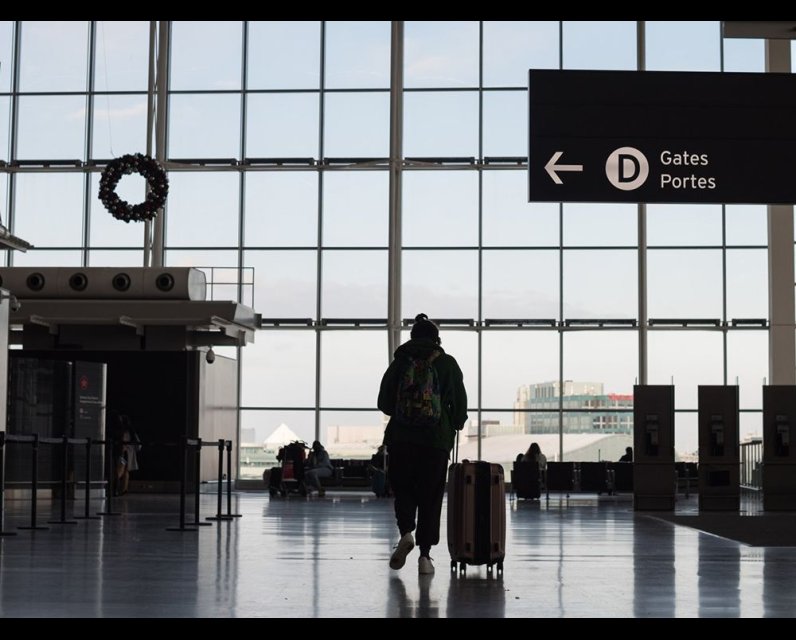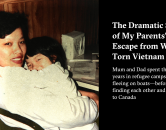How lawyers are advising Canadians to minimize risk of scrutiny at the U.S. border

Telling a client to take a burner phone with them to the U.S. is “the stupidest advice” you could give, says a Toronto-based immigration lawyer.
Canadians travelling to the U.S. are facing increased scrutiny by U.S. Customs and Border Protection (CBP) officers, which has led to fears of detainment or denial of entry based on the contents of travellers’ devices.
However, presenting a burner phone is the equivalent of “turning the lights off” and then telling a border officer, “Okay, now search me,” says Evan Green, one of the two managing partners, with Green and Spiegel.
“It’s an indication that you have something to hide. It’s negligent advice,” he told National Post.
Here’s a look at your rights at the U.S. borderThis past weekend, the Canadian government revised its U.S. travel advisory to warn travellers about the extensive powers of U.S. border officers, emphasizing the need for acting prudently.
Searches of devices such as phones and laptops can include accessing text messages and social media activity. CBP officers can search devices without any evidence of wrongdoing, including demanding passwords to unlock phones, laptops, or tablets. Refusing to unlock devices could lead to confiscation, delays, denial of entry, or even detention while awaiting deportation.
David Garson, managing partner with Toronto-based Garson Immigration Law, shares the view that presenting a burner phone will simply arouse suspicion.
The Customs and Border Protection officers “are trained in this kind of thing.” Presenting a phone with no texts and no social media is more likely to make the officer think, “Wait a minute. Isn’t this strange. This person has something to hide,” Garson told National Post.
And it may result in “a domino effect,” leading to you being barred from entering the country, he adds.
Device searches have been rare, says Garson, less than one per cent of potential entrants in 2024. The American Civil Liberties Union confirms this. A recent ACLU statement says U.S. Customs and Border Protection searches of electronic devices at the border are relatively uncommon, even if they have been increasing in frequency.
In 2024, CBP reported that only 0.1 per cent of travellers crossing the border had their devices searched. However, says the ACLU, the number of searches has grown significantly over the years: CBP searched over 41,000 devices in 2023 , compared to just 8,503 in 2015.
What should you do to minimize risk of search at the U.S. border?The bottom line, says Green, is that “the rules haven’t changed, even if the refs are calling it more strictly.” Anyone crossing into the U.S. still has to answer the questions, he adds.
Green advises travellers, whether they’re going to the United States for business or pleasure to carry all their back-up documents. “Take your flight itinerary, a copy of your hotel reservation, a letter from your employer about the conference you’re attending or the theatre tickets to the Broadway shows you’re going to see.”
Canadian ‘nonimmigrants’ travelling to the U.S. exempt from new fingerprinting requirementIt should be noted that travellers seeking entry don’t have much of a leg to stand on if they insist on their rights. “Not a helluva lot” once you’re on U.S. soil, says Garson. The U.S. doesn’t extend the same rights to non-immigrants that Canada does.
However, Garson suggests there are small things you can do. For example, he suggests that you don’t give the border patrol officer the code needed to access your phone. “Open it yourself.”
His best advice to Canadians is to “self-assess.” Cut the risk of being barred from the U.S. could mean asking yourself about how you have been active on social media or in attending anti-U.S. rallies. If you are barred from entry, a future desire to enter the U.S. will require a waiver to do so, he cautions.
Will anti-Trump social media posts prevent you from getting into the U.S.?But what about those anti-Trump social media posts? Will they prevent you from getting into the country? “No,” Green insists. “Half the country didn’t vote for him.”
Though Green had one person call his firm about being refused entrance. That person had antisemitic content on his device, he says.
On that point, Garson is also cautious. “They are starting to look at evidence of antisemitism more seriously.”
Entering the U.S. by air provides more flexibility for Canadians who aren’t comfortable with questions from U.S. border authorities. While still on Canadian soil, you can decide not to go south. You don’t have that luxury if you are entering by land and are on U.S. soil when you’re being questioned. Then you can be detained while awaiting deportation.
While on Canadian soil “the only reason for the border officers to hold you is if they think you have committed a crime. In that case, they will contact local police,” says Green.
Garson agrees that pre-flight areas in Canadian airports offer more flexibility.
Still, he says, travellers should keep in mind that one million people a week apply to enter the U.S. “If you’re going to do what you say you’re doing, you’ll be all right. If you’re evasive, it signals you have something to hide.”
Ultimately, says Green: “Just be polite. Answer the questions. Have the documents needed to support your answers.”
Our website is the place for the latest breaking news, exclusive scoops, longreads and provocative commentary. Please bookmark nationalpost.com and sign up for our daily newsletter, Posted, here.



Comments
Be the first to comment